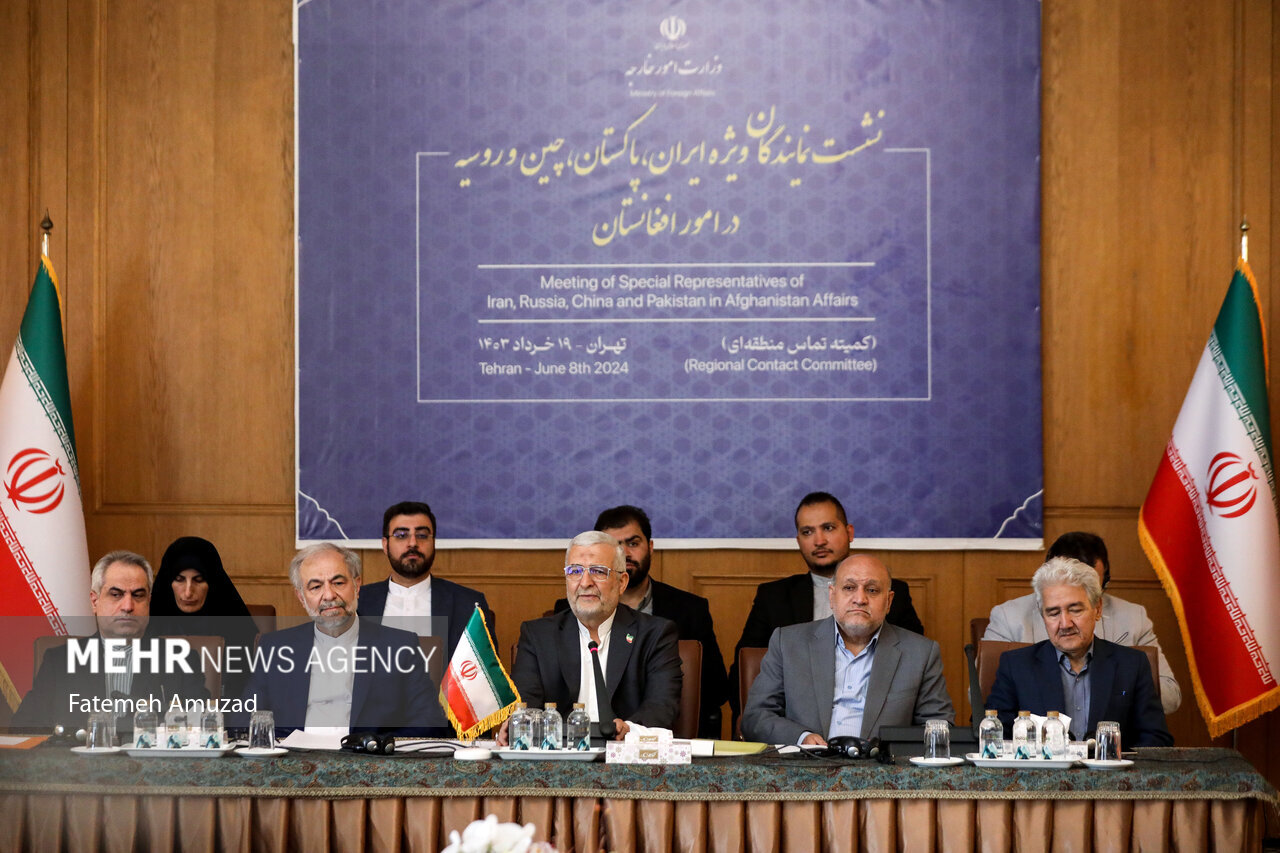Iran acting FM urges U.S. to release Afghanistan's frozen assets

TEHRAN – Ali Bagheri Kani, the acting Iranian Foreign Minister, stressed the urgent need to unfreeze Afghanistan’s assets, which have been blocked by the United States.
Bagheri Kani made the remarks in a letter that was read at the beginning of the second meeting of the regional contact group for Afghanistan that kicked off in Tehran on Saturday morning.
During the meeting, Bagheri Kani underscored the critical role of special representatives from China, Russia, Pakistan, and Iran. He expressed optimism that the discussions would lead to constructive proposals for peaceful coexistence among Afghanistan's neighbors and the broader international community.
Bagheri Kani pointed out that nearly three years have passed since the American occupying forces withdrew from Afghanistan. Despite their departure, Afghanistan continues to grapple with significant issues.
He acknowledged some progress made by the interim Afghan government but emphasized that many problems remain unresolved. He attributed these issues to the historical neglect and economic underdevelopment imposed by the occupying forces and criticized the continued blockade of Afghanistan’s assets as a significant hindrance to the country's development.
Reaffirming Iran's commitment, Bagheri Kani highlighted the importance of supporting initiatives for peace, stability, and development in Afghanistan. He cited Iran's active participation in forums such as the Afghanistan Neighboring Countries' Foreign Ministers' Meetings and the Moscow Format, which underscore the collective responsibility of the region to foster a stable Afghan government.
Bagheri Kani emphasized the necessity of regional collaboration, noting that aligning regional values is crucial for forging bilateral and multilateral agreements with Afghanistan. He called on the international community to move beyond merely discussing Afghanistan’s problems and to actively propose and implement viable solutions.
Reflecting on the historical context, Bagheri Kani remarked that the current economic hardships and underdevelopment in Afghanistan are largely the result of the occupiers' actions, which destroyed the country's infrastructure and left it in ruins. He asserted that these forces must shoulder their humanitarian responsibilities and contribute to Afghanistan's economic recovery without political interference.
The acting Foreign Minister also addressed the significant challenge posed by Afghan migration, which exerts pressure on neighboring countries like Iran and Pakistan while depriving Afghanistan of its workforce. He advocated for a responsible mechanism under UN supervision to facilitate the return of Afghan refugees and ensure their dignified reintegration into Afghan society.
Bagheri Kani recognized the interim Afghan government's efforts to form an inclusive government that represents all ethnic groups. He stressed that such inclusivity is vital for Afghanistan's political stability and economic development, a sentiment echoed in declarations from regional and neighboring meetings.
In his concluding remarks, Bagheri Kani highlighted Afghanistan's strategic geographical position, which could make it a key hub for East-West and North-South connectivity. He called for enhanced regional cooperation to develop Afghanistan's infrastructure, benefiting the entire region.
The acting Foreign Minister expressed concern over attempts by some external countries to influence developments in Afghanistan in ways that undermine its sovereignty. He called for regional unity and collaboration with international organizations and Afghanistan's interim government to prevent further foreign interference.
Reiterating Iran's stance, Bagheri Kani affirmed Iran's full support for constructive initiatives that ensure Afghanistan's peace, stability, sovereignty, and territorial integrity. He urged the United Nations to pay closer attention to the humanitarian conditions in the country, emphasizing the need for a coordinated international effort to address Afghanistan's challenges.
On Saturday, Iran hosted the second meeting of the Regional Contact Group on Afghanistan, a forum established by the Islamic Republic in January to address concerns about the Central Asian country.
Special representatives from Iran, Pakistan, China, and Russia attended the session.
Rasoul Mousavi, an assistant to Iran's acting Foreign Minister Ali Bagheri Kani, outlined the meeting's agenda, stating, "The meeting will include consultations among Iranian, Pakistani, Chinese, and Russian representatives on Afghanistan’s future."
He further emphasized the significance of the gathering, stating, "The Tehran meeting aims to be a harbinger of peace, stability, and development for Afghanistan and the region, supported by regional cooperation and convergence."
The inaugural meeting of the group was held in Kabul on January 18, bringing together special representatives and ambassadors from the regional countries and Afghanistan’s neighbors.
The context of these meetings follows the Taliban's return to power in August 2021, which led to the chaotic withdrawal of United States-led foreign forces and the rapid collapse of Afghanistan’s U.S.-trained security forces.
The philosophy behind the "Regional Contact Group for Afghanistan" meetings is to find regional solutions to Afghanistan’s problems, benefiting the Afghan people rather than external powers. As global dynamics shift from unipolar and bipolar systems to regional orders, solutions for Afghanistan must consider regional ties and cooperation for lasting progress and stability.
Iran believes that resolving Afghanistan’s problems lies in Afghan-led solutions, overcoming unilateralism, achieving internal cohesion, and addressing social and economic demands, which are key to building a peaceful and prosperous Afghanistan.
